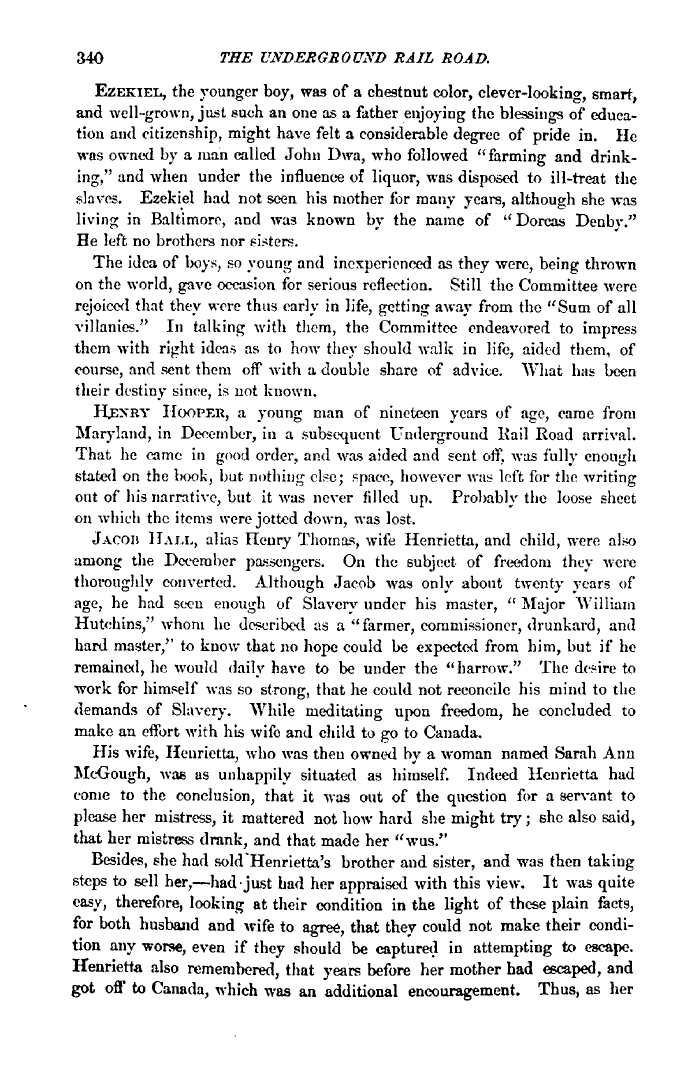 |
||||
 |
||||
| 340 THE UNDERGROUND RAIL ROAD. EZEKIEL, the younger boy, was of a chestnut color, clever-looking, smart, and well-grown, just such an one as a father enjoying the blessings of education and citizenship, might have felt a considerable degree of pride in. He was owned by a man called John Dwa, who followed " farming and drinking," and when under the influence of liquor, was disposed to ill-treat the slaves. Ezekiel had not seen his mother for many years, although she was living in Baltimore, and was known by the name of " Dorcas Denby." He left no brothers nor sisters. The idea of boys, so young and inexperienced as they were, being thrown on the world, gave occasion for serious reflection. Still the Committee were rejoiced that they were thus early in life, getting away from the "Sum of all villanies." In talking with them, the Committee endeavored to impress them with right ideas as to how they should walk in life, aided them, of course, and sent them off with a double share of advice. What has been their destiny since, is not known. HENRY HOOPER, a young man of nineteen years of age, came from Maryland, in December, in a subsequent Underground Kail Road arrival. That he came in good order, and was aided and sent oiF, was fully enough statol on the book, but, nothing else; space, however was loft for the writing out of his narrative, but it was never filled up. Probably the loose sheet on which the items were jotted down, was lost. JACOII HAJ..L, alias Floury Thomas, wife Henrietta, and child, were also among the December passengers. On the subject of freedom they were thoroughly converted. Although Jacob was only about twenty years of age, he had seen enough of Slavery under his master, " Major William Hutehins," whom he described as a "farmer, commissioner, drunkard, and bard master/' to know that no hope could be expected from him, but if he remained, ho would daily have to be under the "harrow." The desire to •work for himself was so strong, that he could not reconcile his mind to tlic demands of Slavery. While meditating upon freedom, he concluded to make au effort with his wife and child to go to Canada. His wife, Henrietta, who was theu owned by a woman named Sarah Aim McGough, woe us unhappily situated as himself. Indeed Henrietta hud come to the conclusion, that it was out of the question for a servant to please her mistress, it mattered not how hard she might try; she also said, that her mistress drank, and that made her "wus." Besides, she had sold'Henrietta's brother and sister, and was then taking steps to sell her,—had-just bad her appraised with this view. It was quite easy, therefore, looking at their condition in the light of these plain facts, for both husband and wife to agree, that they could not make their condition any worse, even if they should be captured in attempting to escape. Henrietta also remembered, that years before her mother had escaped, and got off to Canada, which was an additional encouragement. Thus, as her |